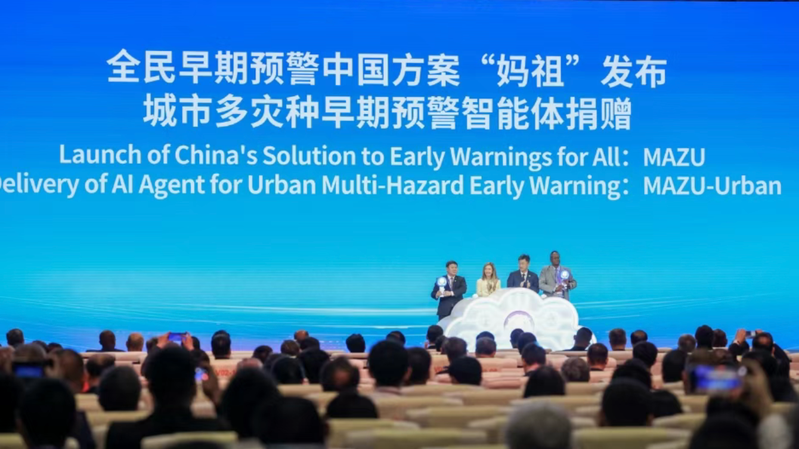At the World Artificial Intelligence Conference (WAIC) on July 26, the China Meteorological Administration (CMA) from the Chinese mainland unveiled "MAZU," a cutting-edge early warning initiative designed to connect communities worldwide in the face of escalating climate threats.
MAZU joins the UN’s Early Warnings for All (EW4All) effort, which aims to ensure that everyone on Earth benefits from life-saving alerts for hazardous weather, water or climate events by 2027. By tapping AI-driven analysis, satellite data, and a network of regional sensors, Mazu promises fast, localized warnings delivered via mobile apps, text messages, and broadcast channels—even in remote or underserved areas.
For young global citizens, entrepreneurs, and changemakers, Mazu represents more than technology—it’s a model of international collaboration. Startups in emerging markets could leverage Mazu’s open data feeds to build new alert tools, while activists and academics can access real-time climate insights to drive policy and grassroots action.
Beyond the tech scene, sports fans and digital nomads stand to benefit too. Imagine hikers receiving advance flood alerts before reaching a river crossing, or festival-goers getting storm warnings in real time. This seamless integration of AI and meteorology underscores how innovation can save lives and empower communities—from G20 capitals to remote islands.
With the 2027 EW4All deadline approaching, Mazu’s launch at WAIC signals a turning point: a global safety net woven from data, AI and shared commitment. As climate risks grow, early warnings aren’t just alerts—they’re lifelines in a connected world.
Reference(s):
China launches initiative to boost global early warning systems
cgtn.com




